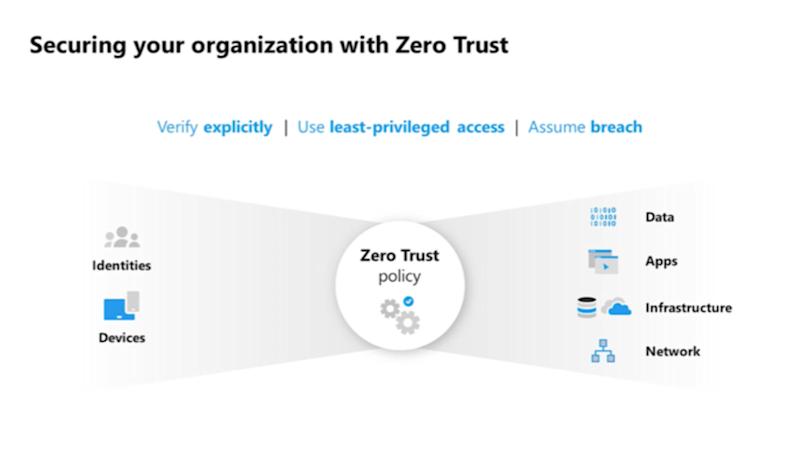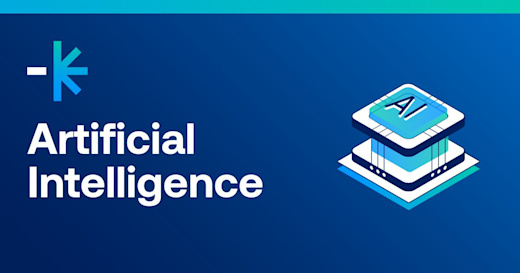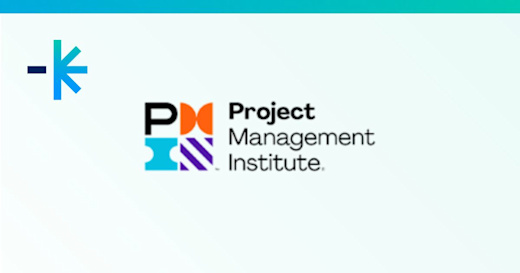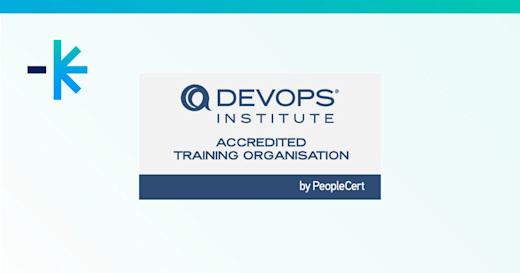If you've been working on your organisation's security for a while now, you may know about Zero Trust.
But how do you implement it and take your skills to the next level? Learning and earning certifications can help you manage Microsoft Security features for implementing Zero Trust.
What is Zero Trust?
It is a security model designed to provide a higher level of security for modern digital environments. In this cybersecurity concept, teams and systems assume that threats exist inside and outside the network and that no user or device can be trusted without verification.
In the model, all network traffic, user activity, and access requests are closely monitored, regardless of whether they originate inside or outside the network perimeter. Zero Trust means that users and devices must continually prove their identity and adhere to strict security policies before accessing sensitive resources or data.
The Zero Trust model helps to reduce the risk of data breaches by limiting access to sensitive information to only those who need it and by verifying the identity of users and devices before granting access. It also helps to mitigate the damage caused by cyber-attacks by containing any security incidents that do occur so that they do not spread to other parts of the network.
Skill up for security
It would help if you had a training plan to support your next level of capability and confidently implement Zero Trust within your organisation.
Here are three steps to jumpstart your journey to the security, compliance, and identity skills you need.
With help from Microsoft Learn and Microsoft Learning partners like Lumify, you have the structure and resources to empower yourself and your teams as they expand their technical skill sets.
Familiarise yourself with the skills map and your milestones.
Discuss the recommended skilling journeys and the tracks for learners with a Microsoft Learning partner like Lumify.Identify the skills that you need.
Match your planned career direction and next steps with your skilling path. Each journey is designed to help identify where to start and where to go based on their roles or projects.Muster your resources.
After determining which journey is the right fit, find courses, training opportunities, and other essential information that sets your team up for success.
Microsoft Security Certifications
Collaborating with Microsoft to create a Zero Trust security framework and implementing training and certification programs can help you maximise your investment in Microsoft cloud tools for identity, security, management and compliance.
Microsoft Certified: Security, Compliance, and Identity Fundamentals
Business stakeholders, new or existing IT professionals, or students interested in Microsoft security, compliance, and identity solutions are encouraged to explore the fundamentals of security, compliance, and identity (SCI) across cloud-based and related Microsoft services through this.
Microsoft Certified: Azure Security Engineer
This Microsoft Azure Security certification is for professionals implementing security controls and threat protection as part of an end-to-end infrastructure.
Microsoft Certified: Microsoft 365 Security Administrator
This credential is for those who proactively secure Microsoft 365 enterprise and hybrid environments, implement and manage security and compliance solutions, respond to threats, and enforce data governance.
Microsoft Certified: Security Operations Analyst Associate
If you collaborate with organisational stakeholders to secure information technology systems and reduce risk by rapidly remediating active attacks in the environment.
Microsoft Certified: Identity and Access Administrator Associate
This credential is for those who design, implement, and operate an organisation’s identity and access management systems using Azure AD.
Microsoft Certified: Information Protection and Compliance Administrator Associate
This training and certification validate the skills of those responsible for translating requirements and compliance controls into technical implementation.
Supporting your Zero Trust and Microsoft SCI certification journey
You can find Microsoft Security courses and certifications on Lumify. Learn from our pool of Microsoft Certified Trainers (MCTs) - the largest in Asia Pacific. Our trainers are veterans in the cyber security industry and can provide well-rounded insights on Zero Trust.
For more than three decades, we've been helping people master technological change. As DDLS and Auldhouse, we've upskilled thousands of teams and businesses, partnering with the world's top tech vendors to become Australasia's undisputed leaders in ICT training.
Under the banner of our new brand, Lumify Group, we're building on that legacy. Through our three core brands - Lumify Learn, Lumify Work and Lumify People - we're able to deliver on the full spectrum of IT training.
Lumify Work is your best choice for training and certification in any of Microsoft’s leading technologies and services. We’ve been delivering effective training across all Microsoft products for over 30 years and are proud to be Australia and New Zealand’s first Microsoft Gold Learning Solutions Partner.
We're thrilled to announce that Lumify Work has been honoured with the Microsoft MCT Superstars Award for FY24. This is a testament to the high quality of our Microsoft Certified
Trainers (MCTs) across Australia and New Zealand.You can access courses through the Lumify Anywhere platform that supports your schedule and logistical needs – self-paced, instructor-led, or bootcamp-style. You can also access instructor-led training virtually or at one of our campuses in New Zealand in Christchurch, Wellington and Auckland.
Download our Microsoft Security eBook to learn more about opportunities in cyber security and how to map out your career in this field. Get certified for Microsoft security under a global IT leader today and enquire about Cyber security courses and training paths.








